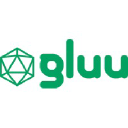
Gluu Open Banking Identity Platform
A robust identity and access management platform for financial institutions, addressing security and compliance challenges in open banking.
| Category | API Security |
|---|---|
| Last Commit | 2 years ago |
| This page updated | 1 year, 1 month ago |
| Pricing Details | Pricing based on peak Monthly Active Users (MAU). |
| Target Audience | Financial institutions and organizations implementing open banking solutions. |
The Gluu Open Banking Identity Platform addresses the critical security and compliance challenges faced by financial institutions in the era of open banking. This platform, built on the Linux Foundation’s Janssen Project, leverages open standards such as OAuth, OpenID Connect, and WebAuthn to ensure secure access to banking APIs.
Technically, the platform integrates a robust identity and access management (IAM) system that includes components like the OpenID Connect server, OAuth 2.0 for non-browser identity flows, and FIDO for phishing-resistant authentication. The architecture is designed to be highly scalable and flexible, allowing deployment on public or private clouds using tools like Helm, Rancher, and Terraform. The Flex Admin UI provides a comprehensive control plane with features such as reporting and audit, enhancing enterprise management capabilities.
Operationally, the platform is cost-effective, with pricing based on peak Monthly Active Users (MAU), which helps in managing costs for users who do not frequently log in. It also supports multi-factor authentication (MFA) methods, including SMS, one-time passwords, and FIDO authentication, allowing users to self-manage their MFA credentials. The use of JWT access tokens for securing APIs adds another layer of security, enabling real-time policy enforcement.
However, there are operational considerations and limitations. For instance, the platform requires careful configuration of keys, certificates, and SSA validation endpoints to ensure compliance with open banking regulations. This involves setting up JWKS endpoints, keystores, and trust stores, which can be complex and require precise scripting.
Additionally, while the platform offers significant flexibility with its open-source core, there are tradeoffs in terms of support and feature availability. For example, if a commercial subscription expires, the enterprise control plane will lock, although the core authentication service will remain operational using open-source tools.
In summary, the Gluu Open Banking Identity Platform provides a robust, standards-based security infrastructure for open banking, but it demands careful configuration and management to fully leverage its capabilities.